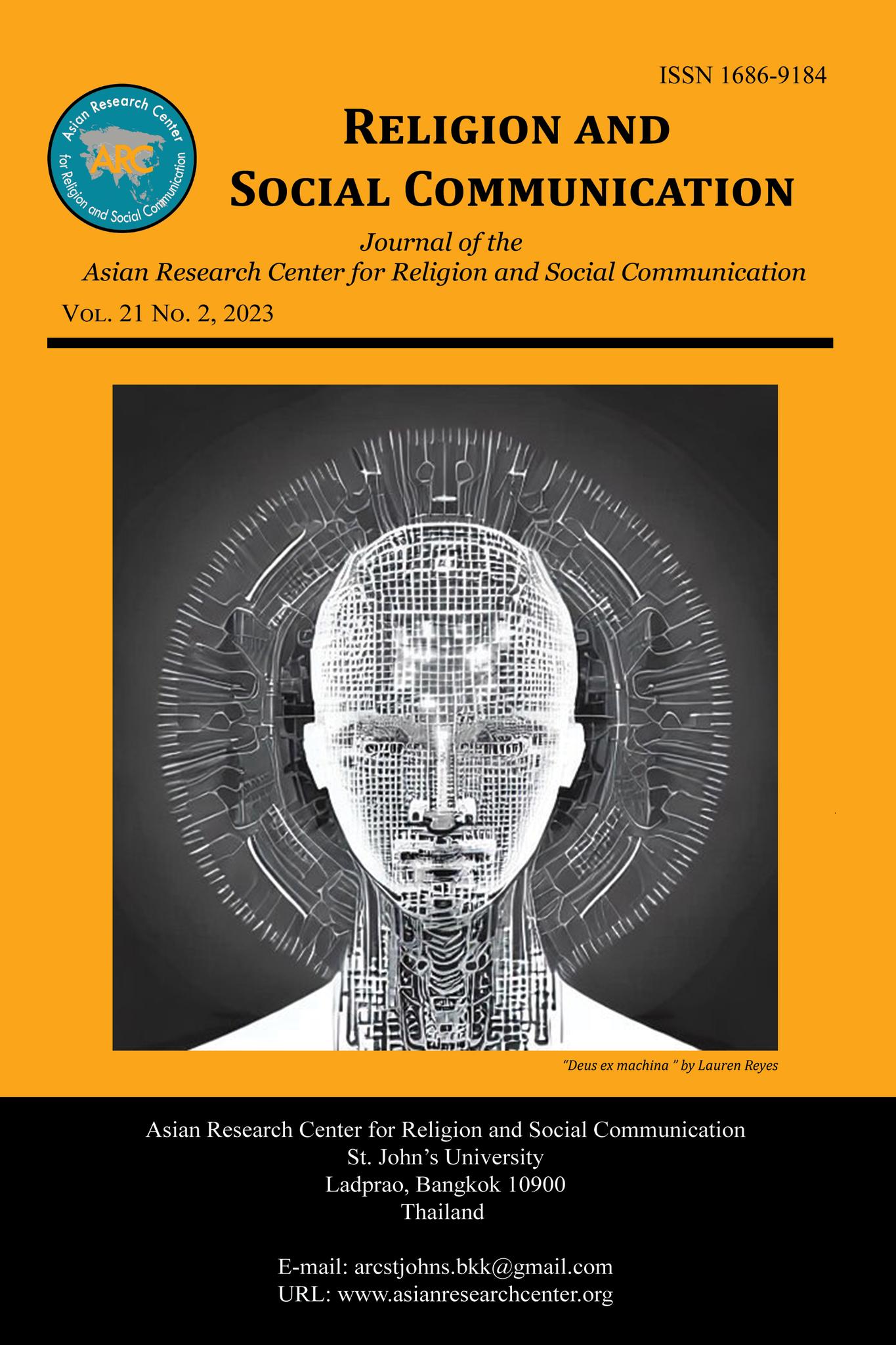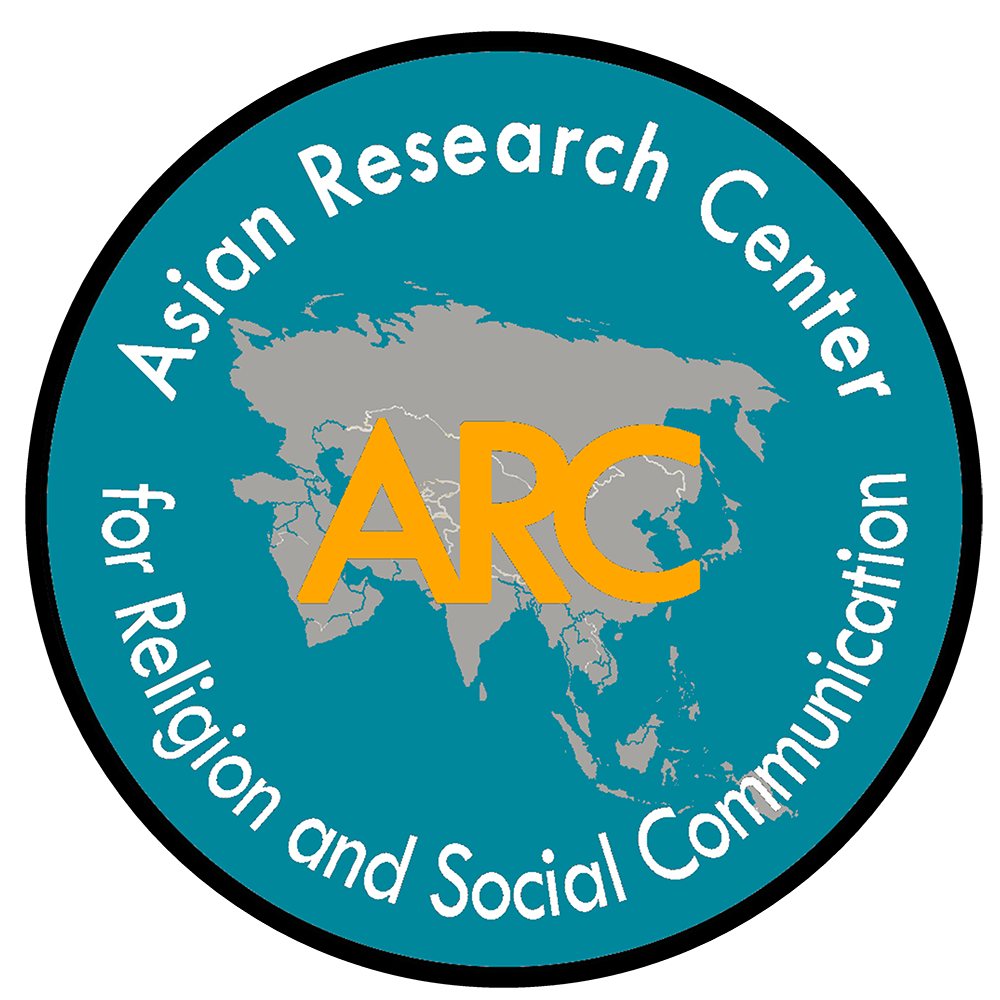Education and Industrial Revolution 4.0: Prospects and Challenges to ASEAN Education in the Case of Philippine Education
Download
RELIGION AND SOCIAL COMMUNICATION VOLUME 21, NO. 2 (2023)
ISSN 1686-9184
Author
Joefrey M. Almazan
Abstract
ASEAN Education is confronted with the emerging paradigms of twenty-first century education brought about by the rapid globalization process and the dawning of the new industrial revolution popularly dubbed as “IR 4.0” (Industrial Revolution 4.0). IR 4.0 demands a new framework of education – one that readies individuals with appropriate, competent, and highly innovative skills as man-machine collaboration intensifies. Hence, there is now a shift of focus from improving industrial machines to investing more in human capital. This is the pathway ASEAN education is traversing right now. ASEAN Education aims primarily at producing highly skilled service providers who are twenty-first century ready and who will work effectively and efficiently for industries in the IR 4.0. Nevertheless, education is more than being able to stabilize and improve one’s economic standing in life. There is a more noble purpose towards which one undertakes the tedious process of learning. That is: to be fully human and transform the world. Using Paolo Freire’s Critical Pedagogy, the modalities and paradigms of twenty-first century education were critiqued in order to align with this vision. Thus, with the ongoing innovative progress in ASEAN Education, serious considerations arise: “Will the alignment of man and machine to enable new possibilities cause further alienation for humanity?”; “When real classrooms are substituted by virtual classrooms, will healthy social interaction be maintained?”; “Are the trends of the twenty-first century education truly set towards the furtherance of human depth and breadth?
Keywords
criticality, education, fourth industrial revolution, globalization
References
Belecina, Rene R., and Jose M. Ocampo, Jr. “Effecting Change on Students’ Critical Thinking in Problem Solving.” Educare: International Journal for Educational Studies 10, no. 2 (February 2018): 109-118.
Branch, William T., and Anuradha Paranjape. “Feedback and Reflection: Teaching Methods for Clinical Settings.” Academic Medicine 77, no. 12 (December 2002): 1185-1188.
Cantor, Nathaniel. The Teaching – Learning Process. New York: Holt, Rinehart and Winston, Inc., 1953.
Rusman, Dan, and Debora S. Pratiwi. “Enhancing Critical Thinking Skills in Higher Education in Preparation of Industry 4.0: A Literature Review.” December 30, 2018. http://icerd2018.conference.upi.edu/wpcontent/uploads/sites/30/2018/12/Fullpape r_Debora-Pratiwi.pdf.
Department of Education. “Briones Underscores Importance of Industry 4.0 Dev’t in PH Public Administration.” Gov.Ph, November 27, 2018. https://www.deped.gov.ph/2018/11/27/briones-underscores-importance-of industry-4- 0-devt-in-ph-public-administration/.
Fisk, Peter. “Education 4.0 … The Future of Learning Will be Dramatically Different, in School and Throughout Life.” Genius Works, January 24, 2017. https://www.thegeniusworks.com/2017/01/future-education-young- everyone-taught-together/.
Freire, Paulo. Letters to Cristina: Reflections on My Life and Work. London: Routledge, 1996.
Freire, Paulo. Pedagogy of the Oppressed, 30th Anniversary Edition. Translated by Myra Bergman Ramos. New York: Continuum International Publishing Group Inc., 2005.
Freire, Paulo, and Donaldo Macedo. “A Dialogue: Culture, Language and Race.” Harvard Educational Review 65, no. 3 (1995): 377-402.
Giroux, Henry A. Education and the Crisis of Public Values. New York: Peter Lang, 2012. Giroux, Henry A. On Critical Pedagogy. New York: Continuum International, 2011.
Gray, Alex. “The 10 skills you need to thrive in the Fourth Industrial Revolution.” World Economic Forum, January 19, 2016. https://www.weforum.org/agenda/2016/01/the-10-skills-you-need-to-thrive-in- the-fourth-industrial-revolution/.
Hupfer, Suszane. “Critical Thinking Rivals Technical Skills for Industry 4.0 Success.” Deloitte, April 17, 2019. https://www2.deloitte.com/us/en/pages/technology-media-andtelecommunications /articles/critical-thinking-skills-required-industry-40.html.
Killen, Roy. “Outcomes-Based Education: Principles and Possibilities.” http://drjj.uitm.edu.my/DRJJ/OBEFSGDec07/2-Killen_paper_good- kena baca.pdf
Lee-Chua, Queena N. “Why Education Matters: Quotes from the Wise.” Inquirer.net, June 10, 2012. https://newsinfo.inquirer.net/210221/why- education-matters-quotes-from-the-wise.
McLaren, Peter. Life in Schools: An Introduction to Critical Pedagogy in the Foundations of Education. London: Longman, 1989.
Puncreobutr, Vichian. “Education 4.0: New Challenge of Learning.” St. Theresa Journal of Humanities and Social Sciences 2, no. 2 (2016): 92-97. http://www.stic.ac.th/ojs/index.php/sjhs/article/view/Position%20Paper3/47.
Philippine Statistics Authority. “Nine Percent of Filipinos Aged 6 to 24 Years Are Out of School (Results from the 2017 Annual Poverty Indicators Survey).” Gov.Ph, June 6, 2018. https://psa.gov.ph/content/nine-percent- filipinos-aged-6-24-years-are-out-school-results-2017-annual-poverty-indicators.
“Private Universities’ Quest to Improve Degree Quality and Graduate Employability in the Philippines.” QS Asia News Network, July 2, 2018. https://qswownews.com/private-universities-quest-to-improve-degree-quality-and-graduate-employability-in-the-philippines/.
Roberts, Peter. Education, Literacy, and Humanization: Exploring the Work of Paulo Freire. Westport: Bergin and Garvey, 2000.
Roberts, Peter. “Impure Neoliberalism: A Freirean Critique of Dominant Trends in Higher Education.” Rizoma Freireano 22 (2017). http://www.rizoma-freireano.org/impure-neoliberalism-22.
Schwab, Klaus. The Fourth Industrial Revolution. Geneva: World Economic Forum, 2016.
Schwab, Klaus. “The Fourth Industrial Revolution: What It Means, How to Respond.” World Economic Forum, January 14, 2016. https://www.weforum.org/agenda/2016/01/the-fourth-industrial-revolution-what- it-means-and-how-to-respond/.
Schwartzman, Roy. “Consequences of Commodifying Education.” Academic Exchange Quarterly 17, no. 3 (Fall 2013): 41-46.
“Senior High School Voucher Program (SHS VP).” Private Education Assistance Committee (PEAC). Accessed on April 10, 2020. https://peac.org.ph/senior-high- school-voucher-program/.
Spady, William. Outcome-Based Education: Critical Issues and Answers. Arlington, VA: American Association of School Administrators, 1994.
The Civil Society Network for Education Reforms et al. “Privatization, Commercialization and Low Government Financing in Education: Infringing on the Right to Education of Filipinos.” February 2016. Accessed April 10, 2020. http://www.aspbae.org/userfiles/may16/HR_ParallelReport_Philippines.pdf.
PAGES 313-338
DOI: https://doi.org/10.62461/JMA112923
Submitted: September 15, 2023; Accepted: November 29, 2023; Published: December 31, 2023.





